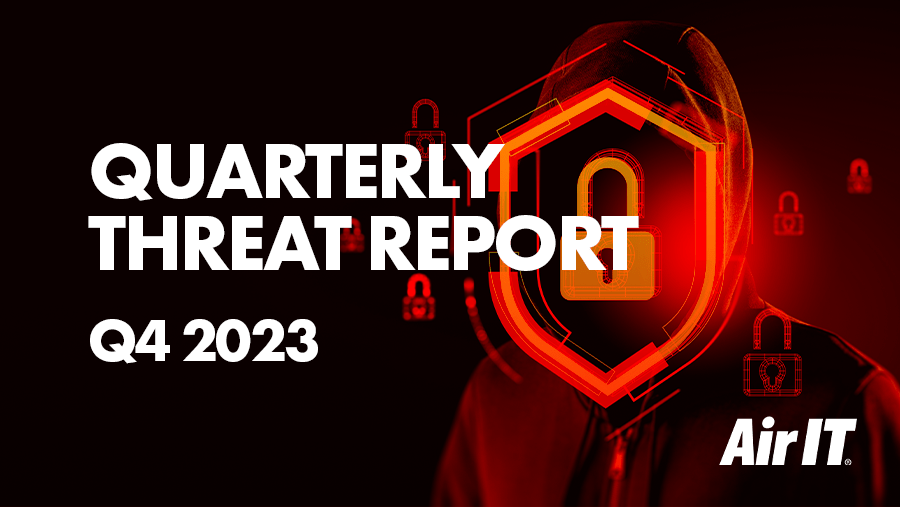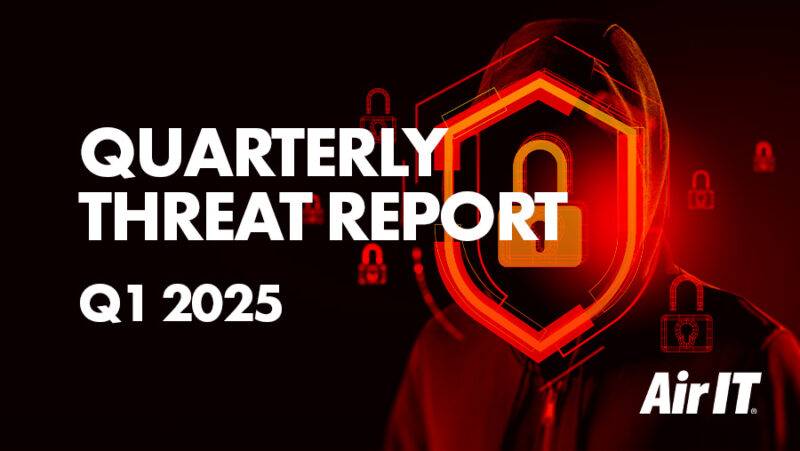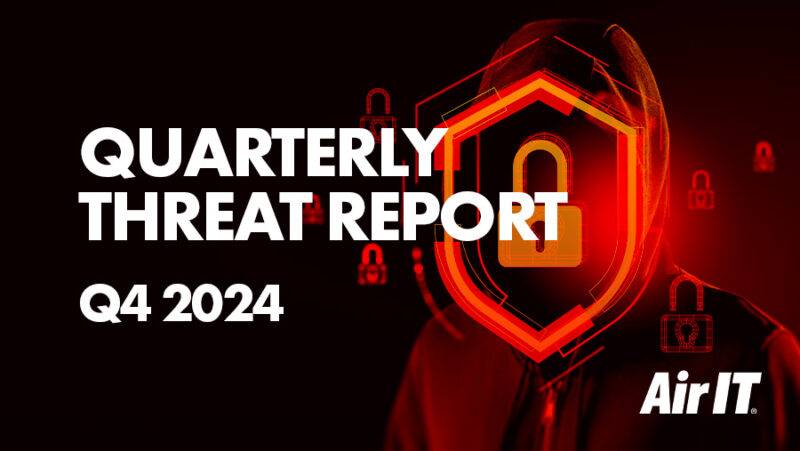2023 has seen a significant evolution in cyber security, with the emergence of increasingly complex and sophisticated threats, as well as rapid changes in digital environments. The following threat report includes a detailed round-up of the evolving cyber security landscape, including key updates from Q4 2023.

According to ISACA’s State of Cyber Security report for 2023, 48% of organisations experienced a rise in cyber attacks in Q4 2023 compared to the previous year, indicating an increasing number of digital threats across various sectors and industries.
The cyber security threat landscape is expanding as devices and systems become more interconnected, and digital technologies continue to multiply. Persistent cyber attacks such as ransomware, phishing, and insider threats continue to pose significant risks to individuals, enterprises, and governments. Although these threats are not new, the surge in data volume and global connectivity has widened the vulnerabilities that criminals and hackers exploit for their advantage.
Top threats
- Ransomware attacks continue to be a major threat to organisations. Attackers use malware to encrypt an organisation’s data and demand payment in exchange for the decryption key.
- Phishing attacks are becoming increasingly sophisticated, making it difficult for organisations to detect them. Attackers use social engineering techniques to trick employees into providing sensitive information.
- Supply chain attacks are on the rise, with attackers targeting third-party vendors to gain access to an organisation’s network.
- The increasing use of IoT devices has made them a prime target for cyber attacks. Attackers can use these devices to gain access to an organisation’s network and steal sensitive information.
- As more organisations move their data to the cloud, cloud security has become a major concern. When not adequately protected, attackers can exploit vulnerabilities in cloud infrastructure to gain access to an organisation’s data.
Vanessa Eyles, Director of The Cyber Resilience Centre for West Midlands said:
The vast majority of small businesses do not consider themselves at risk because they do not have much in the bank. However, they miss a fundamental point: they may be attacked specifically because of their size because they are seen as weak links.
Good cyber security becomes an enabler in that it shows you are a progressive thinking organisation.
In the news
- NCSC develops new global guidelines for AI security: New guidelines have been introduced for the secure development of AI systems, which will assist developers at very stage of the decision-making process to ensure cybersecurity.
- UK cyber skills gap grows 29% despite record hiring: A new report by ISC2 reveals that the UK’s cybersecurity workforce is still significantly below demand, with a record gap of 73,439, up 29.3% YoY.
- UK experienced more than 17 million daily cyber attacks in 2023: UK-based sensors or ‘honeypots’ faced over 17 million daily attacks from over one million unique threat actors throughout the year.
- Biggest-ever DDoS attack and other top cyber security news: A round-up of the key cyber security stories from the past month.
Key takeaways
- Organisations should be aware of the increasing sophistication of cyber attacks and take steps to protect themselves.
- Employee training is critical to preventing successful phishing attacks. Cyber criminals are much more likely to target those who lack security knowledge than IT professionals.
- Organisations should conduct regular security audits to identify vulnerabilities in their network.
- The use of multi-factor authentication can help prevent unauthorised access to an organisation’s network.
- Organisations should work with their third-party vendors to ensure that they have adequate security measures in place.
- Outsourcing Cyber Security is an efficient solution for businesses impacted by the current skills shortage.
- Businesses should consider implementing policies around the use of AI in the workplace.
Don’t be the next victim
We offer a free IT audit that can help you establish a solid foundation for your future growth and success. Our audit is designed to identify any loopholes or weaknesses in your infrastructure and ensure that you have the latest anti-virus and threat management tools and updates in place.




